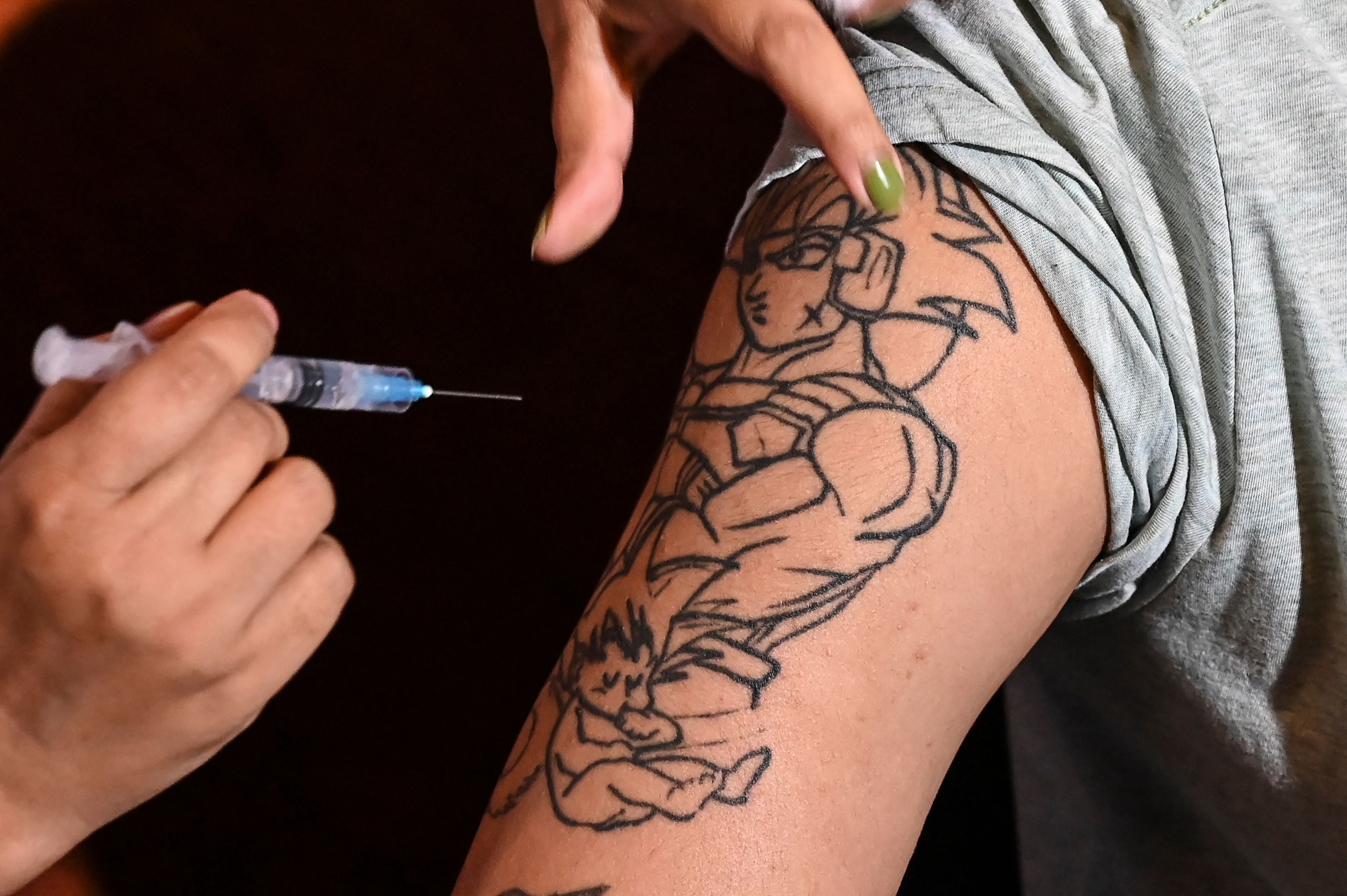Accept our vaccines or face consequences, India warns EU
Covishield, Indian-made version of AstraZeneca was not recognised by EU regulator

Your support helps us to tell the story
From reproductive rights to climate change to Big Tech, The Independent is on the ground when the story is developing. Whether it's investigating the financials of Elon Musk's pro-Trump PAC or producing our latest documentary, 'The A Word', which shines a light on the American women fighting for reproductive rights, we know how important it is to parse out the facts from the messaging.
At such a critical moment in US history, we need reporters on the ground. Your donation allows us to keep sending journalists to speak to both sides of the story.
The Independent is trusted by Americans across the entire political spectrum. And unlike many other quality news outlets, we choose not to lock Americans out of our reporting and analysis with paywalls. We believe quality journalism should be available to everyone, paid for by those who can afford it.
Your support makes all the difference.India has warned the European Union it won’t recognise the EU’s vaccine certificate unless the bloc accepts Indian-made vaccines for its digital green pass.
The officials in New Delhi have asked EU member-states to individually consider accepting India-made vaccines.
Eight EU countries have subsequently approved an Indian shot, according to sources.
India conveyed that New Delhi health authorities would reciprocally exempt all those carrying EU Digital Covid Certificate by allowing quarantine-free travel after Indian vaccines are included in EU Digital Covid Certificate.
“We have also conveyed to EU member-states that India will institute a reciprocal policy for recognition of the EU Digital Covid Certificate,” a source in India’s external affairs ministry said, reported The Indian Express.
This comes amid a row over reports that European Medicines Agency (EMA) did not recognise India’s Covishield vaccine, despite it being the branding for the AstraZeneca shot produced in India.
The EU’s top medical body has approved only four vaccines: Comirnaty (BioNTech-Pfizer), Janssen (Johnson & Johnson), Moderna and Vaxzevria (Oxford-AstraZeneca).
Only those who have received these four vaccines are granted the EU’s digital green certificate to allow for free movement within the bloc.
On Tuesday, India’s foreign minister S Jaishankar also raised the issue with a top EU official Josep Borrell Fontelles. "Discussed vaccine production and access. Took up ‘Covishield’ authorisation for travel to Europe. Will be following up," Mr Jaishankar tweeted.
At least eight EU members have now approved the Covishield jab, in what is being seen as a response to lobbying by India.
“So far, Austria, Germany, Slovenia, Greece, Iceland, Ireland, and Spain are confirmed as including Covishield [in the Green Pass]. Switzerland (not an EU state) also allows Covishield as a Schengen state,” sources told NDTV.
19 countries in the bloc have not yet recognised Covishield.
India’s Serum Institute, which is making hundreds of millions of doses of Oxford-AstraZeneca’s vaccine, is seeking emergency authorisation in the EU for its shot and said on Wednesday they are expecting clearance in a few weeks.
The jabs produced by India have been exported to other nations under UN’s Covax programme for the equitable distribution of vaccines.
The nations importing Covishield jabs from Serum Institute will face challenges without the EU regulator’s approval for the jab.
India had previously raised issues with the "vaccine passports" plan at a meeting of health ministers from G7 countries. Indian health minister Dr Harsh Vardhan called it “discriminatory,” saying that vaccine coverage as a percentage of the population in developing countries still low in comparison to other countries.
Join our commenting forum
Join thought-provoking conversations, follow other Independent readers and see their replies
Comments